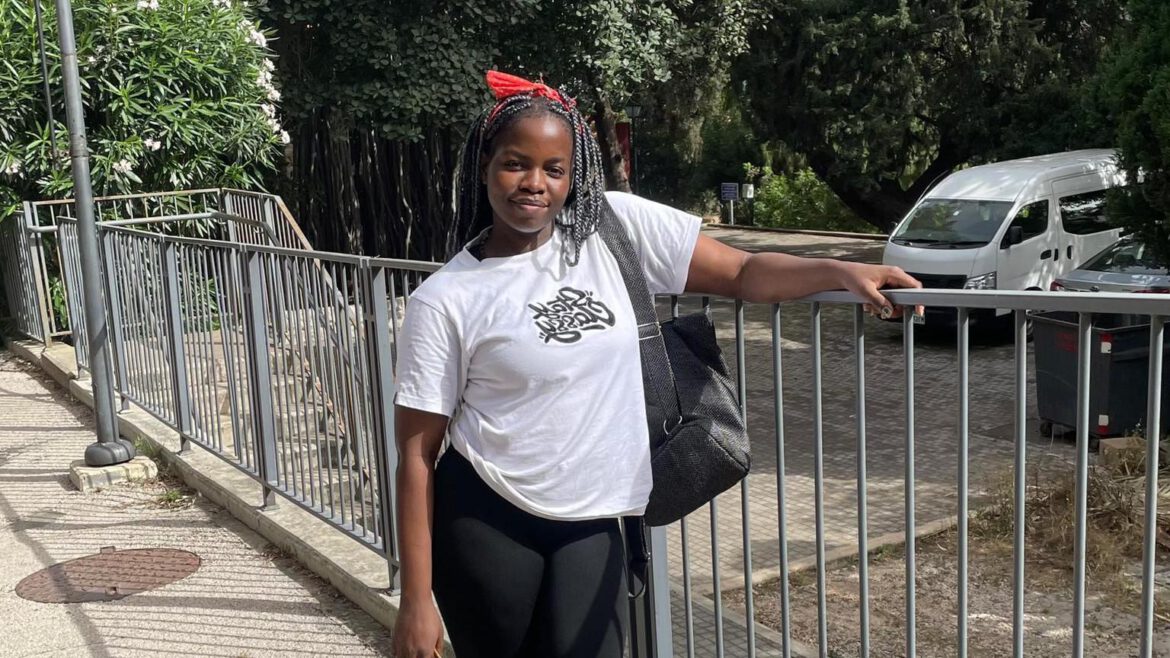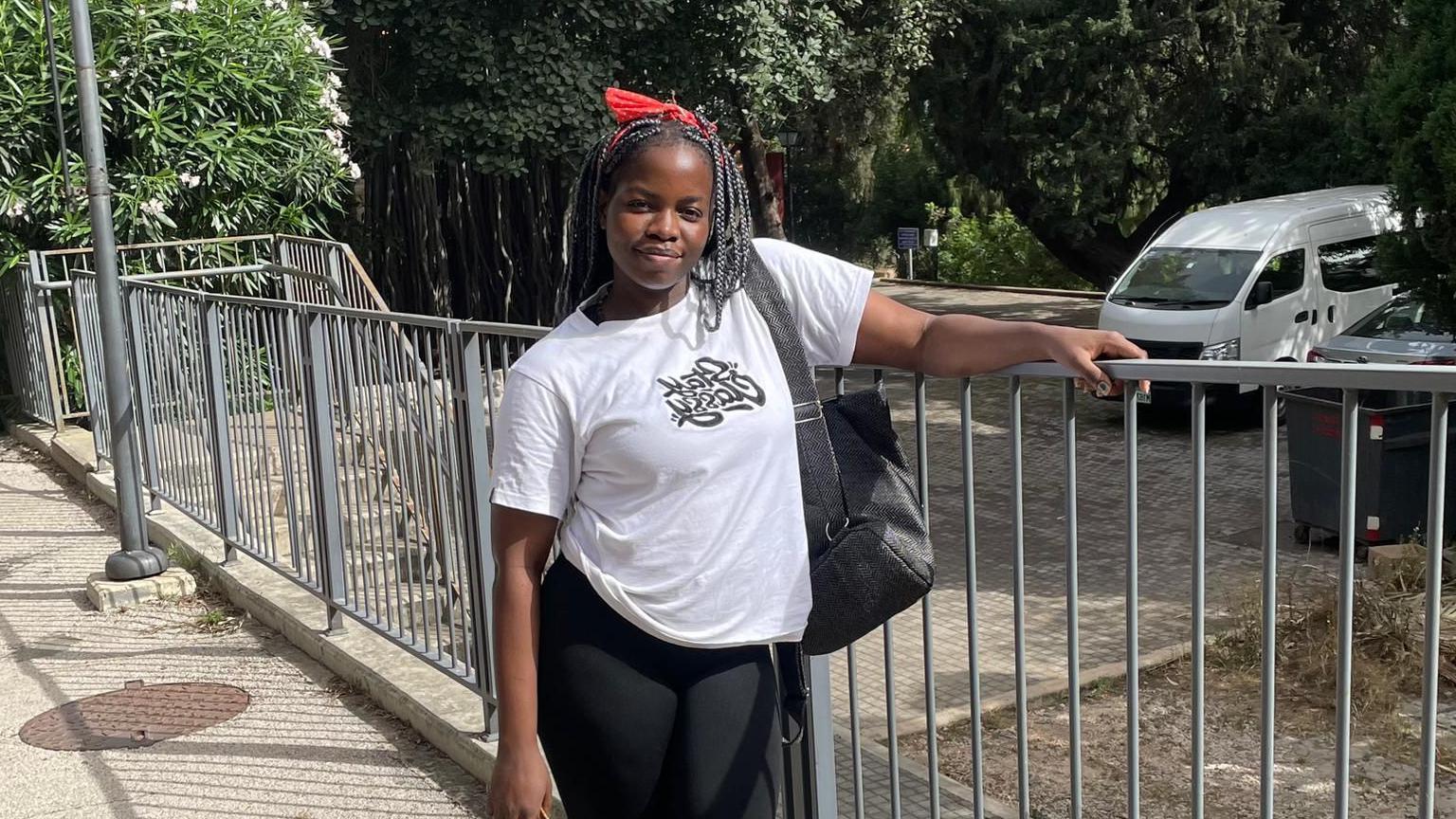
Farai wey be 27-year-old student from Zimbabwe bin dey keep im university books ontop im desk for house for Beirut, but dis week, im don replace dem wit im passport, travel documents, and cash.
“I get plan for mysef in case I need to leave urgently,” e tok.
Farai, wey we change im name to protect im identity, bin return to Lebanon in September to finish di final year of im master’s degree for mechanical engineering.
E bin spend di summer break for house for Harare.
E return wit hope say di conflict go end. But since Hamas attack Israel on 7 October last year, almost evri day Israel and Hezbollah dey exchange fire for di border.
Hezbollah, na one military group for Lebanon wey Iran dey support.
Dis week don see di deadliest days of conflict for Lebanon for almost 20 years. Around 120,000 pipo don dey displaced since Monday, according to di United Nations.
Israel military say dem dey carry out new wave of strikes for southern Lebanon and di Beqaa area, to destroy Hezbollah infrastructure.
Last week, 39 pipo die and thousands injure wen pagers and walkie-talkies used by Hezbollah members bin explode across di kontri.
Hezbollah say dem dey act in solidarity wit Palestinians. Israel say dem wan help dia citizens wey bin comot for dia homes close to di border to return to northern Israel.
Di US, UK, Australia, France, Canada and India don issue official advice give dia citizens to comot from Lebanon as soon as possible.
African students wey follow BBC News tok say dem dey face dilemma – weda to remain for Lebanon as Israel continue to dey attack or return home to dia kontris like Uganda, Zimbabwe and Cameroon.
For di American University of Beirut (AUB), wia Farai dey study, dem get about 90 African students for one scholarship programme dia.
Farai say fear don increase wella among di students, especially since di pager and walkie-talkie explosions.
“We no know who fit dey carry ticking time bomb for dia pockets,” e tok.
“Shey na your taxi driver? Shey na your Uber driver? Shey na di pesin you dey waka next to?”
- Invasion of Lebanon: Wetin fit happun?
- ‘Rape me instead of my daughters’ – women tok about Sudan horrific war
- Nigerian Navy release and fire Seaman Abbas Haruna?
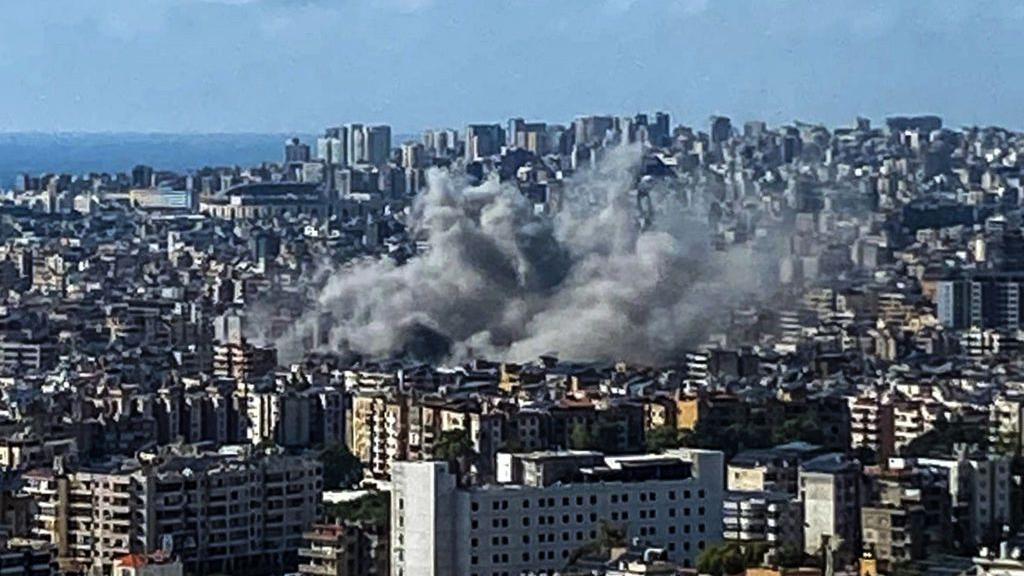
Anxiety on campus
Normally, Farai dey spend im days by going to classes and and also see im friends. Now e say e dey only comot for house to go to university and shop for important tins.
E recently stock up im house wit staple foods like bread, pasta and bottled water in case of shortages.
Most of im classes don go online and wen e manage go to di campus, e say di tension dey real.
“Evribodi dey fear. Even di way we communicate don dey different,” e tok.
“Wen we finish class, our professor go say ‘have a good day and stay safe’. We say di same tin becos we know wetin dey happun for di kontri.”
“Nobodi dey safe.”
While AUB bin close dia campus on di day of di pager explosions, dem don reopen am since. But dem no go get any instructional activities, like classes and exams until 28 September.
Di announcement come afta Lebanon Ministry of Education bin close public and private schools on Tuesday until di end of di week.
Di ministry say dem go use public schools to accommodate pipo wey dey displaced by di airstrikes for di south of di kontri.
Earlier dis week, di Lebanese University also announce say dem go close dia campuses until Monday 30 September.
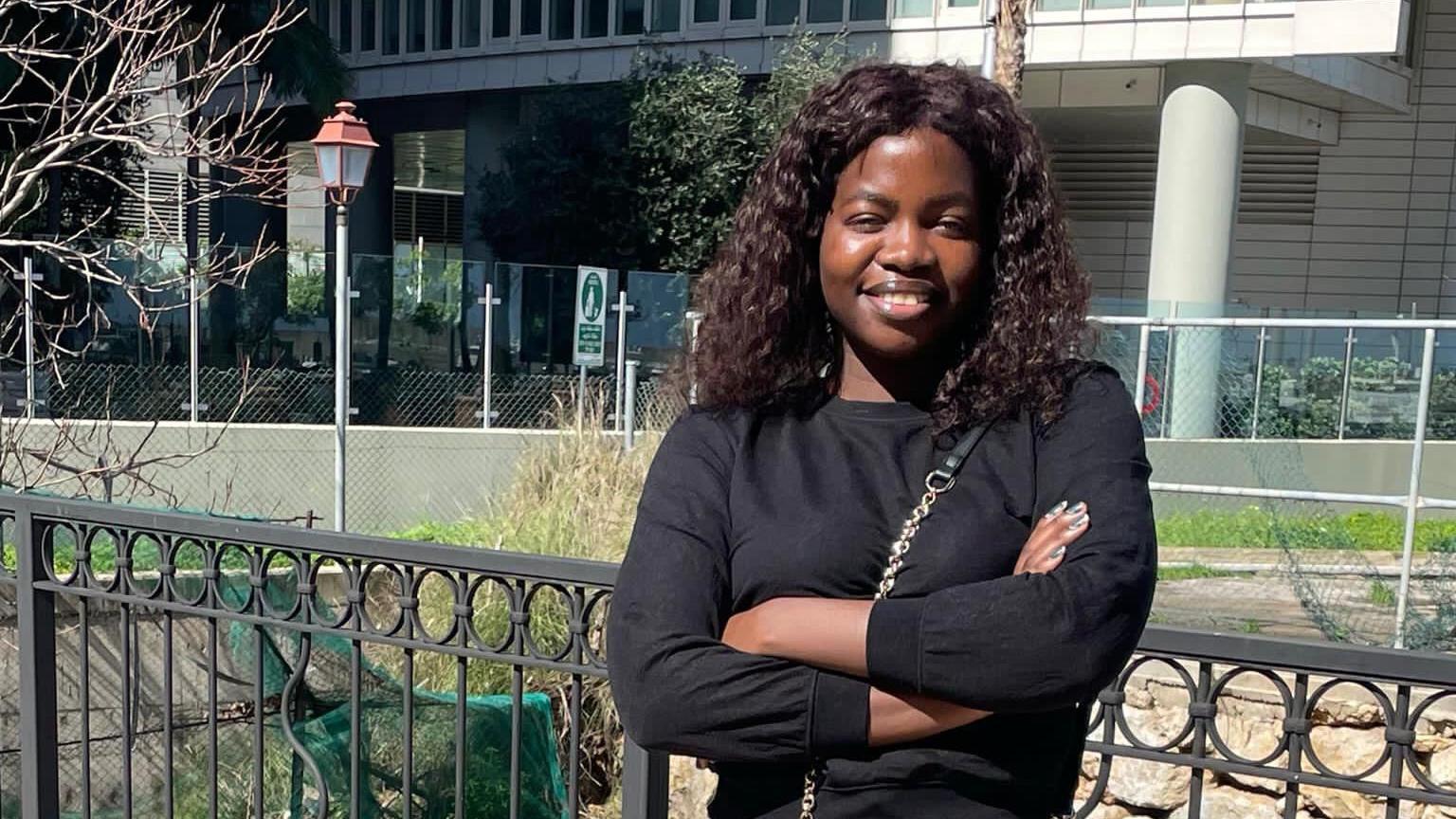
Classes don shift go online
Di scholarship programme wey dey fund African students for AUB don give international students di option to go home and finish dia course online. But some students say dat one no go dey possible.
Sharon Atyang, wey be 27-year-old student from northern Uganda, dey currently complete her master’s for community development for AUB.
She say electricity and internet issues go make am almost impossible to complete her studies online.
“I also dey on scholarship, and I no know if I travel home weda dem go gree bring me back here if situation stabilise,” she tok.
Adele from Cameroon, wey we don also change her name to protect her identity, also say to complete her undergraduate radiology degree for home go dey almost impossible.
“I no fit do my clinical rotations for house, and I need to complete dem as part of my degree,” she tok.
In case of anoda attack for Beirut, she don pack her bags.
“I get evritin ready to go.”
Na di Mastercard Scholarship Program dey finance dozens of African students for Lebanon.
Mastercard Foundation say dem dey closely monitor wetin dey happun and dem dey work wit AUB to support students.
Dia tok-tok pesin say: “AUB dey regularly communicate wit di students and dem don offer dem support for dia health and well-being.”
“Di academic curriculum dey flexible and dem don make necessary accommodations to account for di current disruptions and to make sure say academics dey go on for di enrolled students. International students wey wan go back return home we go support dem to do so.”
E still dey possible to comot from Beirut through di international airport, but flights dey difficult to get. Many airlines like Emirates, Qatar Airways, Air France and Lufthansa don suspend dia flights to and from di city.
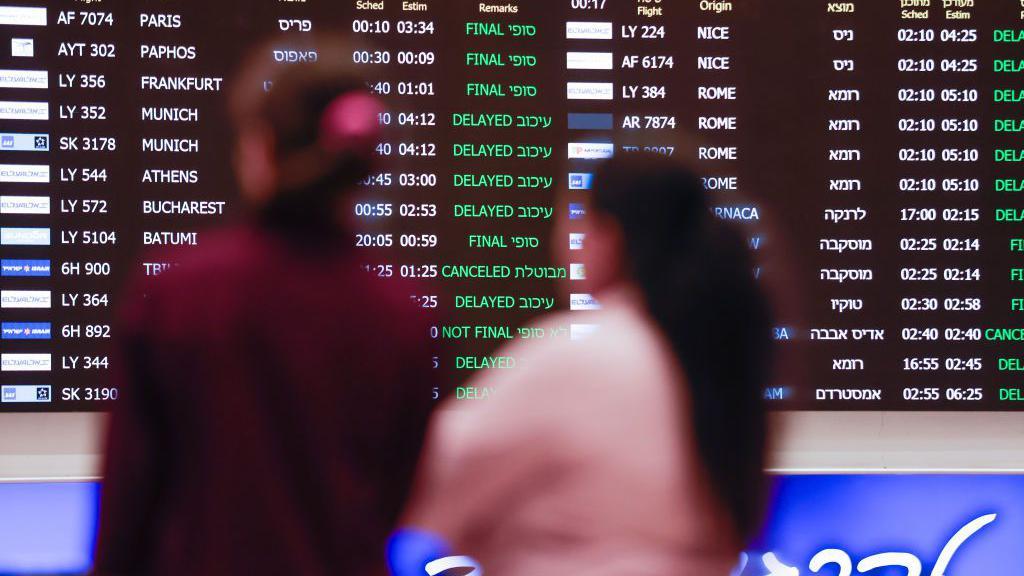
‘We no fit concentrate’
Anoda student, Sharon, say from her bedroom for Beirut she dey hear di sounds of Israeli fighter jets wey dey fly ova di city.
“I bin dey for one reading room and wen I hear di sound barrier breaking, I just run. But I no get any wia to run to. I just find myself for inside toilet as I hide,” she tok.
Di stress of waiting for anoda attack don make her “emotionally and mentally unstable – [and she no fit] to do anytin”.
She say many students don ask dia professors to extend deadlines for assignments.
As she dey try to study and write her thesis, Sharon dey also answer frantic calls from her family back home for Uganda.
“Dem dey demand make I go back home. Dem say I need to put my life first ova academics.”
Some African goments like Kenya don already start to dey carry dia pipo comot.
Di Principal Secretary for Diaspora Affairs for Kenya, Roseline Njogu, confam say nine Kenyans bin arrive for di kontri for August.
She ask oda Kenyans wey wan comot to register for di embassy. E get about 26,000 Kenyans currently for Lebanon.
Last month, di former Ethiopian goment tok-tok pesin for di Ministry of Foreign Affairs, Nebiyu Tedla, bin tell BBC say dem dey monitor di situation closely and “we dey prepare plans to evacuate if necessary”.
E say dem get about 150,000 Ethiopians for Lebanon, and majority na domestic workers.
Some of dis workers dey face additional challenges as dem dey work under Lebanon strict kafala system, wia dem gatz ask permission from dia employers bifor dem go leave.
For students like Farai and Sharon, to comot from Lebanon fit dey easier to organise. But dem still remain sake of say dem dey desperate to finish dia studies.
Both of dem say dem go make a decision in di next few days.
Sharon say e dey harder for African students. “You dey on your own, and you gatz to take care of yoursef,” she tok.

